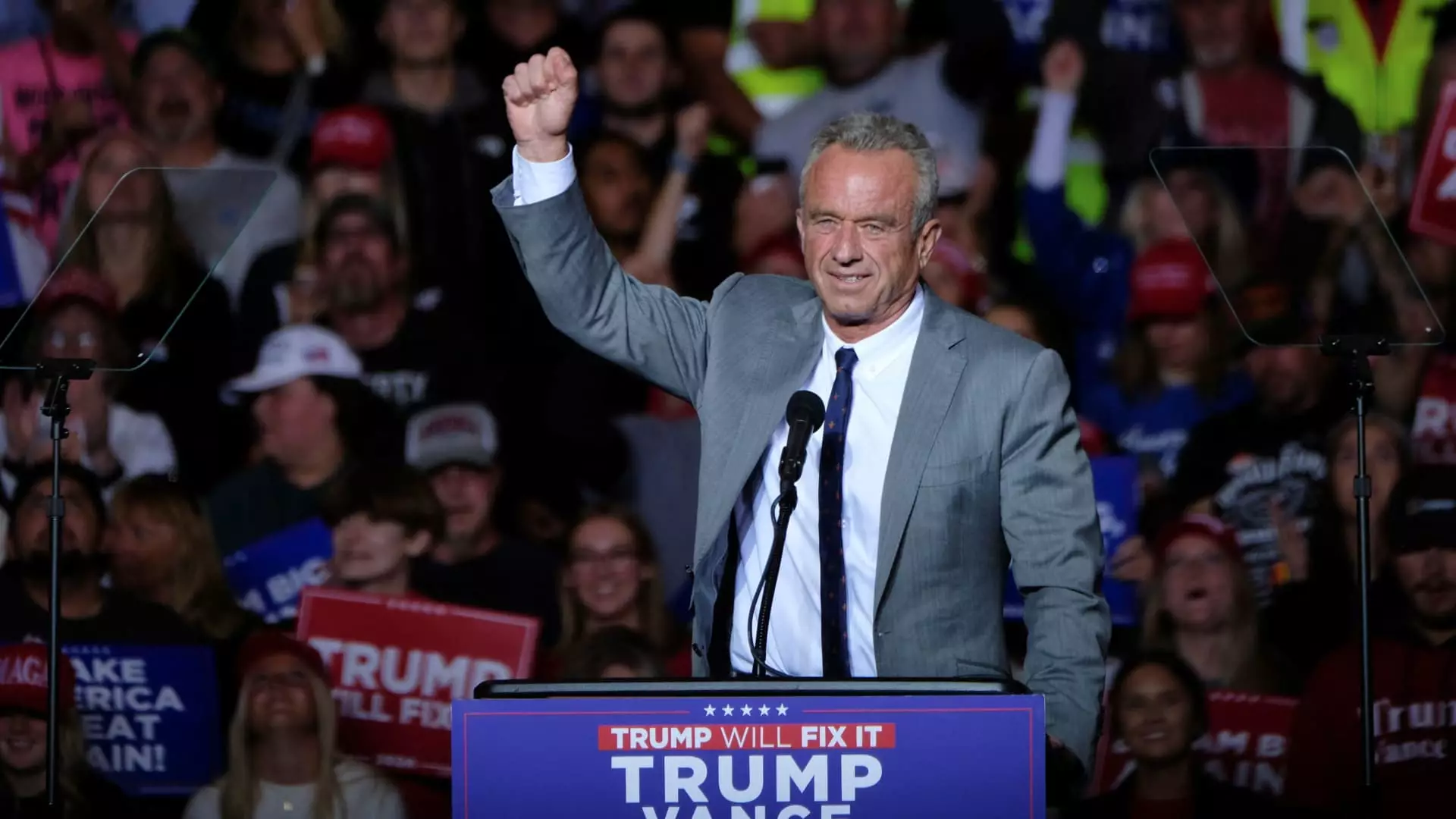In recent trading, Henry Schein, a prominent dental care supplier, saw a notable increase in its stock value, driven by speculation surrounding the policies of Robert F. Kennedy Jr., who has been nominated as the Health and Human Services (HHS) secretary by President-elect Donald Trump. Investors are optimistic about the prospect of fluoride removal from the U.S. water supply, anticipating that such a move could lead to increased dental care needs and, consequently, a rising demand for dental healthcare products and services. This shift in sentiment among investors highlights how political appointments can have significant ripple effects across specific market segments, such as dental care.
On Monday, Henry Schein’s shares surged nearly 5%, marking its best performance day since July, while other dental companies like Dentsply Sirona and Envista also experienced slight gains. This upward movement is partly attributed to a recent post by Kennedy that hinted at a Trump administration endorsing the removal of fluoride from public water systems. Fluoride has historically been a cornerstone of cavity prevention in dental health, but its controversial status has led some municipalities to reconsider water fluoridation practices. The anticipation surrounding Kennedy’s potential influence in the HHS has created a speculative environment where investors are keen to strategically position themselves in dental-related stocks.
Market analysts suggest that if fluoride were to be removed from water supplies, the increase in dental issues—particularly tooth decay—would likely necessitate a greater number of dental visits. Gordon Haskett, a notable market research firm, indicates that this scenario could position Henry Schein and similar companies favorably within the healthcare sector. Analysts have pointed out that Kennedy’s probable agenda would shift focus away from preventative measures involving fluoride, thereby boosting demand for dental care services as consumers search for alternative solutions to maintain oral health.
Kennedy’s nomination raises crucial questions about the future landscape of healthcare policies in the U.S., particularly regarding public health measures and community health governance. While Kennedy awaits Senate approval to officially assume his position, the markets have already begun to react to the perceived direction of health policies under his guidance. The possibility of scaling back or discontinuing water fluoridation has started to create a divide in the healthcare sector, resulting in varying responses across different markets.
Interestingly, while dental stocks are experiencing a growth spurt, other areas of healthcare, particularly pharmaceuticals, faced declines post-announcement. Kennedy’s well-documented skepticism towards vaccines has led to unease among pharmaceutical investors, resulting in significant stock movements within that segment. Comparatively, the Health Care Select Sector SPDR Fund (XLV) has seen a downward trend of approximately 3.5% throughout November, exhibiting a stark contrast to the over 3% rise in the broader S&P 500 index.
This landscape of uncertainty and potential regulatory shifts could indicate a prolonged period of volatility within the healthcare sector. Investors are therefore urged to navigate this dichotomy with caution, considering both the short-term advantages of investing in dental stocks against the backdrop of a broader regulatory environment that may take time to evolve.
Looking ahead, it is crucial to bear in mind that the implementation of any sweeping policy changes regarding fluoridation would likely require extensive discussions and regulatory processes, potentially taking years to finalize. Moreover, as these policies fall more under the purview of the Environmental Protection Agency (EPA) rather than HHS, the actual impact of Kennedy’s proposed actions on public health may be more nuanced than it currently appears. As stakeholders monitor the situation closely, it is essential to recognize that while speculative trading in response to political changes can yield short-term gains, the long-term implications are often far more complex and less predictable.
The recent excitement surrounding Henry Schein and other dental product manufacturers exemplifies how political appointments can influence market dynamics. Investors must remain attentive to these developments as they assess the potential ramifications of Kennedy’s policies on public health and the dental care industry in the coming years.

